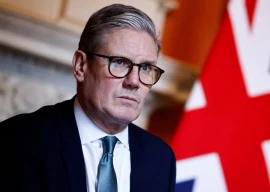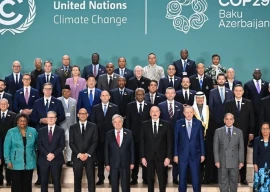
But some senior NATO and Pentagon officials have expressed doubt that the 2014 deadline for a security handover can be achieved, with the threat posed by Taliban insurgents to Afghanistan's weak government rising.
Secretary of State Hillary Clinton said in Lisbon before a NATO summit that the United States and the military alliance had listened to Afghan President Hamid Karzai, who set the 2014 goal, and were addressing his concerns.
Karzai will attend the summit and have talks with U.S. President Barack Obama on Saturday, the second day of the NATO summit in the Portuguese capital.
"We recognize and respect the sovereignty of the Afghan people and the government and we are working closely together," Clinton said after talks with Portugal's foreign minister.
"We will agree tomorrow on the beginning of a transition to Afghan security starting next year with the intention and goal of turning over Afghan security to the government and people of Afghanistan in 2014 ... At the same time there will be continued commitment of civilian support," she told reporters.
NATO leaders will announce the exit strategy at the summit, hoping to draw a line under a war widely seen as going badly for the United States and its allies.
The leaders will also approve a new 10-year vision for NATO, underscoring the need for the 28-nation alliance to be ready for similar missions in the future, despite Afghanistan's setbacks.
In an opinion piece and an interview before the summit, Obama said the U.S. troop reductions would begin next July and reaffirmed commitment toward a reconciliation with the Taliban, which is fighting the Afghan government and foreign troops.
"America and our NATO allies strongly support a ... process that seeks reintegration into society of those Taliban who agree on some main points: they have to abandon violence, break their ties with al Qaeda and agree to live under the rules of the Afghan Constitution," Obama told Spain's El Pais newspaper.
"This reconciliation begins with a dialogue with the insurgent forces and must be led by the Afghans themselves."
NATO STRATEGY
But NATO's senior civilian representative in Kabul, Mark Sedwill, said this week that poor security in some areas could push back the date and Afghanistan could face "eye-watering levels of violence by Western standards".
The Pentagon said on Thursday the 2014 date was only "aspirational" and may not be achievable everywhere.
"I would emphasize two things here: Number one, it is the end of 2014, so effectively, it's by 2015," press secretary Geoff Morrell told reporters.
"Although the hope is, the goal is, to have Afghan security forces in the lead over the preponderance of the country by then, it does not necessarily mean that ... everywhere in the country they will necessarily be in the lead."
The U.S.-led intervention in Afghanistan began in response to the September 11, 2001, attacks after the then-ruling Taliban refused to hand over al Qaeda leader Osama bin Laden.
Now in its 10th year, the war has become a political headache for Obama. Foreign casualties have hit record levels.
The withdrawal strategy hinges on effort to build up Afghan forces so they can contain the widening insurgency, with a target strength set at more than 300,000 by the end of 2011.
But this has been hampered by high desertion rates and the Kabul government is widely regarded as too corrupt, unstable and inept to survive long without foreign military support.
Despite NATO's difficulties in Afghanistan, where a perceived failure would undermine its prestige, alliance leaders will recommit to a global military role when they adopt a new Strategic Concept for the coming decade at the Lisbon summit.
But military analysts say the Afghan experience and pressure on military spending since the global financial crisis have reduced enthusiasm for operations in non-NATO countries.
The leaders were also expected to agree to extend a missile defense system and underline the importance of cooperation with strategic partners such as Russia, through which NATO wants help to broaden its supply routes to Afghanistan.

1722586547-0/Untitled-design-(73)1722586547-0-165x106.webp)


1732326457-0/prime-(1)1732326457-0-165x106.webp)




1731325890-0/trump-(24)1731325890-0-270x192.webp)







COMMENTS
Comments are moderated and generally will be posted if they are on-topic and not abusive.
For more information, please see our Comments FAQ